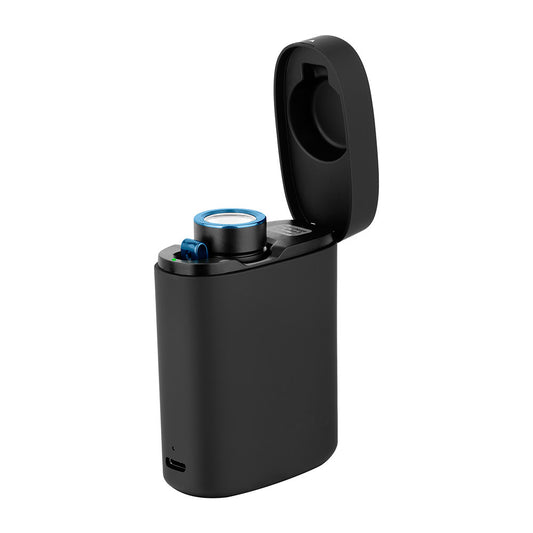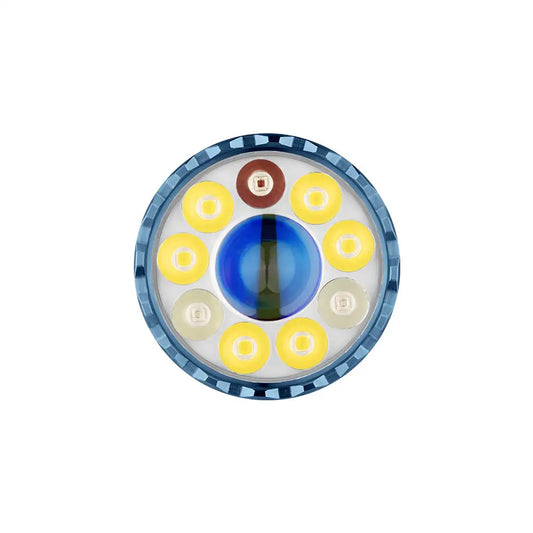
Mastering the Art of Self-Control
Self-control is the magic ingredient that separates those who write their own destiny from those who just fantasize about them. But unlike magic, self-control is a skill; like any skill, it requires dedication and practice. The good news? You're not alone on this journey. Self-control has become more crucial in our fast-paced world, bombarded by instant gratification and endless distractions. From battling the siren song of sugary treats to managing our knee-jerk reactions in challenging situations, self-control is the cornerstone of personal growth, healthy relationships, and overall well-being. It's not just about white-knuckling our way through resisting dessert or staying glued to a boring task. It's a transformative journey of self-discovery, where we learn to understand and wield the immense power of our minds. This article dives deep into the fascinating world of self-control, unpacking its psychological underpinnings, exploring its benefits, providing practical strategies, and guiding you toward lasting self-empowerment.
This quick guide equips you with powerful strategies for developing the self-control you need to reach your goals and live a more empowered life. Let's get started.
Part 1: The Science Behind Self-Control
Before diving into practical strategies, let's explore the fascinating science behind self-control.
• The Prefrontal Cortex: Your Decision-Making Powerhouse: The prefrontal cortex (PFC) is the brain region responsible for high-level cognitive functions like planning, decision-making, and impulse control. It acts like the CEO of your brain, constantly evaluating situations and weighing options. However, the PFC is susceptible to fatigue. The more decisions you make throughout the day, the more depleted it becomes, making it harder to resist temptation later.
• The Limbic System: Your Emotional Power Plant: The limbic system, on the other hand, is the brain's emotional center. It's wired for immediate gratification and reacts impulsively to desires and cravings. When faced with a tempting slice of cake, the limbic system screams, "Eat it!" while the PFC whispers, "Remember your fitness goals."
Self-control is essentially a tug-of-war between these two brain regions. The stronger your PFC, the better equipped you are to make wise choices, even when your limbic system is urging you otherwise.
• The Depletion Effect: Why Willpower Isn't Enough: Many people believe self-control is a fixed resource – like a battery drained with use. This is known as the depletion effect. Research shows that self-control in one area can make it harder to exert it in another. For example, if you spend all morning resisting sugary snacks, you might be more likely to give in to procrastination later in the day.
The good news is that self-control isn't a finite resource. It's a skill that can be strengthened with practice. The strategies outlined in this guide will help you train your PFC to become more resilient and make smarter choices, even when your willpower feels depleted.
Part 2: The Pillars of Self-Control: Building a Strong Foundation

• Self-Awareness: Know Yourself, Master Yourself:
The foundation of self-control is self-awareness. Identifying your triggers – the situations, emotions, or even times of day that make resisting temptation difficult. Here's how to develop self-awareness:
- Track Your Cravings: Keep a journal and note when you experience cravings or urges. Are there certain times of day (e.g., after work), places (e.g., in front of the TV), or emotional states (e.g., feeling stressed) that make them stronger?
- Identify Your Emotional Landscape: Do you tend to eat emotionally? Procrastinate when feeling overwhelmed? Understanding how your emotions influence your behavior is critical.
• Setting SMART Goals: Your Roadmap to Success
Vague goals like "get healthy" or "be more productive" are fleeting and hard to stick with. Instead, set Specific, Measurable, Attainable, Relevant, and Time-bound goals. SMART goals provide a clear roadmap, keeping you focused and motivated.
Here are some examples of SMART goals:
* **Fitness: "I will walk for 30 minutes thrice a week for the next month and lift weights twice weekly."
* **Productivity: "I will block out two distraction-free hours each morning to work on my most important project."
* **Finance: "I will save $200 monthly for the next six months to build an emergency fund."
• Breaking Down Big Goals into Bite-Sized Steps:
Don't try to overhaul your entire life overnight. Large, overwhelming goals can be paralyzing. Break them down into smaller, more manageable steps. This makes them less daunting and increases your chances of success. Imagine training for a marathon – you wouldn't start by running the entire distance on day one. You'd gradually increase your distance over time. Apply the same logic to your goals.
For example, if your goal is improving your public speaking skills, a minor step could be "enroll in a public speaking workshop." Once you complete that step, you could set another goal: "Practice giving a presentation to a small group of friends."
Part 3: Cultivating Self-Control Strategies for Everyday Life
Now that you understand the science behind self-control and have built a strong foundation with self-awareness and SMART goals let's delve into practical strategies you can use every day:
• The Power of "Why": Finding Your Purpose
You have a strong "why" as your anchor when temptation strikes. What are you working towards? Is it better health, a promotion, or simply feeling more in control of your life? Remind yourself of this "why" whenever faced with a difficult choice. A vital purpose fuels your motivation and makes self-control a worthwhile endeavor.
Here are some exercises to help you discover your "why":
Imagine your ideal future: What does your life look like when you've achieved your goals? How do you feel?
Consider your values: What's important to you? Is it health, financial security, creativity, or helping others?
Connect your goals to your values: How do your goals align with your values? How will achieving them help you live a more fulfilling life?
• Mindfulness: The Art of Observing Without Judgment
Mindfulness practices like meditation can be powerful tools for self-control. They help you become more aware of your thoughts and feelings without judgment, allowing you to observe cravings and urges without acting on them impulsively. Many free guided meditations are available online or through apps. Even 5-10 minutes daily can significantly improve your self-awareness and emotional regulation.
Here are some additional mindfulness techniques:
- Mindful breathing: Take a few slow, deep breaths when faced with temptation. Focus on the feeling of your breath entering and leaving your body. This simple practice can help calm your mind and regain control.
- Body scan meditation: Focus on different body parts, noticing physical sensations without judgment. This can help you become more aware of the connection between your thoughts, emotions, and physical body.
• Building Positive Habits: Replacing Bad with Good

The key to lasting change lies in replacing bad habits with good ones. Want to watch less TV? Develop a reading routine instead. The more you repeat a positive behavior, the easier it becomes a habit.
Here are some strategies to build positive habits:
- Habit stacking: Pair a new habit with an existing one. For example, do ten jumping jacks after brushing your teeth in the morning. This leverages the existing routine to form a new habit.
- Focus on progress, not perfection: Don't get discouraged by occasional slip-ups. The important thing is to keep moving forward. Celebrate your small wins and track your progress to stay motivated.
- Reward yourself (the healthy way): Acknowledge your achievements with healthy rewards. Instead of reaching for that donut after a workout, treat yourself to a relaxing bath or a new workout outfit.
• The Power of Forgiveness: Moving On from Setbacks
We all slip up. Don't beat yourself up if you have a setback. Acknowledge it, learn from it, and recommit to your goals. Self-compassion is critical to staying motivated. View setbacks as learning experiences and use them to refine your strategies.
Here are some tips for bouncing back from setbacks:
- Practice self-compassion: Talk to yourself like a friend going through a tough time. Be kind and understanding.
- Identify the trigger: What led to the setback? Understanding the trigger can help you avoid it in the future.
- Refine your strategies: Did you underestimate the strength of the temptation? Did you set unrealistic goals? Adjust your plan to support your self-control better.
• Finding an Accountability Partner: Strength in Numbers
Having someone to support you can make a big difference. Share your goals with a friend, family member, or therapist. Knowing someone is rooting for you can be a powerful motivator. Find a support system – join a gym class, find an online accountability group, or talk to a friend about your goals. Sharing your journey with others can keep you motivated and accountable.
Part 4: Advanced Strategies for Supercharging Your Self-Control
Once you've mastered the core self-control techniques, you can explore these advanced strategies to take your willpower to the next level:
• Hack Your Environment:
Your environment plays a significant role in your self-control. Here's how to make it work for you:
Remove temptations: Don't keep unhealthy snacks in the house if you're trying to eat healthier. If you're trying to be more productive, turn off notifications on your phone.
Create visual cues: Organize your workspace to minimize distractions.
Put sticky notes with your goals or motivational quotes around your workspace.
• The Power of "If-Then" Planning:
This strategy involves creating a plan for responding to situations challenging your self-control. For example:
* **"If" I crave sweets after dinner, "then" I will drink a glass of water and wait 10 minutes before deciding if I'm still hungry.
* **"If" I feel overwhelmed by my to-do list, "then" I will take a 5-minute break to practice deep breathing and prioritize my tasks.
**By pre-planning your responses, you're less likely to make impulsive decisions when tempted.
• Embrace the Power of "No":
Learning to say "no" is a crucial self-control skill. Refrain from extra commitments or activities that drain your time and energy. Saying "no" allows you to focus on your priorities and goals.
• Sleep for Success:
When you're well-rested, your brain functions at its optimal level. This includes your prefrontal cortex, the decision-making center. Aim for 7-8 hours of quality sleep each night to support your self-control efforts.
• Exercise for Self-Control:
Physical activity is good for your body and mind. It helps reduce stress, improve mood, and boost willpower. Aim for at least 30 minutes of moderate-intensity exercise most days of the week.
• Fuel Your Brain with the Right Foods:
What you eat can significantly impact your self-control. Opt for nutritious whole foods that provide sustained energy. Avoid sugary snacks and processed foods that can lead to blood sugar crashes and cravings.
• Practice Gratitude:
Taking time to appreciate the good things in your life can boost your overall well-being and motivation. Gratitude exercises can help you shift your focus away from cravings and toward the positive aspects of your life.
• Embrace Self-Compassion:
Self-control is a journey, not a destination. There will be setbacks along the way. Be kind to yourself and focus on progress, not perfection.
Part 5: Your Self-Control Journey Begins Now
Mastering self-control is an ongoing process that requires dedication and practice. However, with the strategies outlined in this guide, you can develop the willpower you need to achieve your goals and live a more fulfilling life. Remember:
• Self-awareness is the foundation: Identify your triggers and understand your "why."
• Set SMART goals: Create a clear roadmap for your journey.
• Develop positive habits: Replace bad habits with good ones and celebrate your progress.
• Practice mindfulness: Become more aware of your thoughts and emotions.
• Build a support system: Surround yourself with people who will encourage you.
• Embrace self-compassion: Learn from setbacks and keep moving forward.
Believe in yourself, don't be afraid to experiment, and find what works best for you. With consistent effort, you can develop the self-control to turn your dreams into reality.
Bonus: Self-Control Resources
This guide is just the beginning of your self-control journey. Here are some additional resources to help you on your way:
• Books:
- Willpower: Rediscovering the Greatest Human Strength by Kelly McGonigal
- The Power of Habit by Charles Duhigg
- Atomic Habits by James Clear
- The marshmallow test by Walter Mischel
• Websites:
- American Psychological Association: Self-Control: [invalid URL removed]
- Greater Good Science Center at UC Berkeley: Greater Good: https://greatergood.berkeley.edu/
• Apps:
- Headspace (mindfulness meditation)
- Freedom (website blocker)
- HabitHub (habit tracker)
Remember, self-control is a skill that anyone can develop. Take the first step today and empower yourself to reach your full potential!
























































